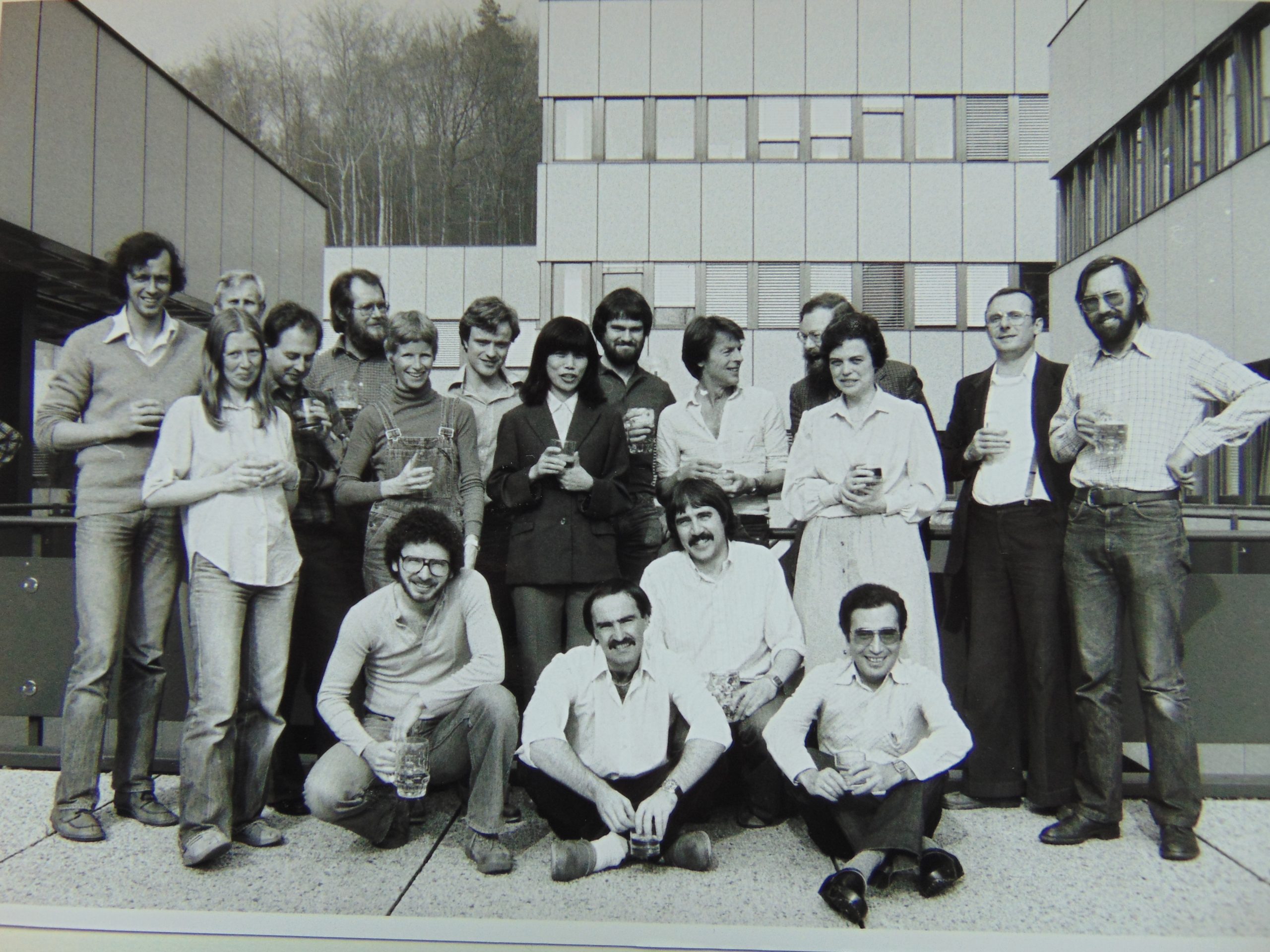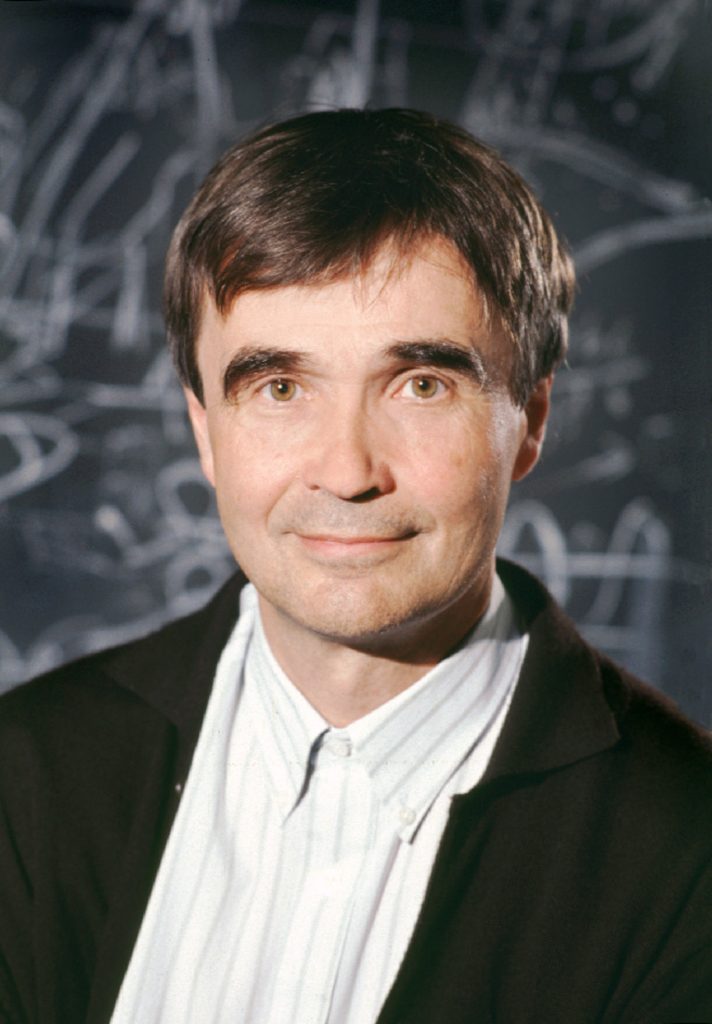EMBL’s People Stories: Discover our Oral History Archive

The EMBL Archive is more than just a repository of EMBL’s history, development and institutional memory, captured for example in reports, documents, videos of events and policies, minutes of meetings. It also aims to preserve the unfiltered history of EMBL through the personal experiences and direct testimonies of its people. These personal accounts are not mere footnotes to official records, but important additional sources to fill in the gaps left by traditional sources of information and to provide as complete a record of EMBL’s history and institutional memory as possible. This commitment to capturing the potential full story of EMBL inspired Anne-Flore Laloë, EMBL’s first archivist, to set up the Oral Histories Programme.
The oral history collection comprises a series of interviews primarily conducted by the EMBL archivist between 2017 and 2019. Additionally, it features interviews conducted by other EMBL staff. For instance, Janet Thornton’s interview, Director of EMBL-EBI from 2001 to 2015, was conducted by Marc Green, the first Head of Administration at EMBL-EBI. Furthermore, Russ Hodge, EMBL’s Public Information Officer in the 2000s, conducted a series of interviews for the EIROforum teaching kit on malaria in 2002. While this last collection is not part of the oral history collection per se and is included in the EIROforum collection, it is pertinent to the mission of the oral history program. This is because it presents a series of oral histories in video format featuring notable leaders and scientists such as EMBL’s third and fourth Director Generals, Fotis Kafatos and Iain Mattaj, as well as EMBL Senior Scientist and Group Leader Matthias Hentze.
The Oral History Collection contains a total of thirty-five interviews, excluding the EIROforum malaria video interviews teaching kit mentioned above. The oral histories cover a diversity of experiences from different phases of EMBL’s development and history, and include perspectives from past and present EMBL staff members, as well as other individuals whose professional trajectories have been connected with EMBL.
The oral histories capture testimonies from staff members, scientists and administrators who have spent many years at EMBL since its founding years. Examples include interviews with Mary Holmes, the first EMBL librarian; Nelly van der Jagt, secretary at EMBL from 1975 to 2014; Leo Burger, the Head of the Mechanical Workshop; John Tooze, the Executive Secretary of EMBO from 1973 to 1994 who assisted in the EMBL establishment; Erich Honig, EMBL Heidelberg driver for 33 years; Frieda Glöckner, who was EMBL’s meetings secretary since 1975; and Ernst Stelzer, Group Leader at Cell Biology and Biophysics unit (CBB) known for his work at confocal fluorescence microscopy.
The collection also contains interviews from EMBL leading figures and prominent scientists worldwide. This includes individuals such as the current and fifth EMBL Director General, Edith Heard; Nadia Rosenthal, who served as the Head of the Mouse Biology Unit at EMBL Monterotondo (Rome) and as a Senior Scientist at the Developmental Biology Unit at EMBL Heidelberg from 2001 until 2011; the 2001 Nobel Prize winner Tim Hunt, who has been a member of EMBO since 1978; the 2017 Nobel Prize winner Jacques Dubochet; Ada Yonath, the 2009 Nobel Prize winner in Chemistry; the molecular biologist Joan Steiz; the 1995 Nobel Prize winner Eric Wieschaus; and Heinrich Stuhrmann, one of the first Heads of the EMBL Hamburg site.
The mosaic of oral histories continues with interviews featuring EMBL scientists, staff, and students, such as histologist Emerald Perlas from EMBL Rome; Rosemary Wilson, the outreach officer at EMBL Hamburg; electrical engineer Andre Gabriel from EMBL Grenoble; and Patrick Baeuerle, recipient of the 2019 Lennart Philipson Award, who was a PhD student in Wieland Huttner’s group at EMBL from 1987 to 1988.
Recently, the EMBL Archive has catalogued its thirty-sixth oral history interview, featuring one of the first group leaders and senior scientists at EMBL, Kai Simons. The interview was conducted by Halldór Stefánsson, the founder and for many years Head of EMBL’s Science and Society Programme. Additionally, we have just interviewed EMBL-EBI Group Leader and Senior Scientist, Alvis Brazma, and we are pleased to announce that his interview will be part of our collection soon.

The Oral History Programme fulfills EMBL’s Archive vision to be a comprehensive resource for the history and development of EMBL as a key institution for the life sciences in Europe and beyond. By capturing the personal experiences and direct testimonies of EMBL’s people, the programme ensures a more comprehensive and nuanced understanding of the institution’s impact and legacy. Aligning with International Archives Week 2024, the EMBL Archive showcases the importance of scientific archives in establishing oral history programmes. These programmes empower scientific institutions to make informed decisions, foster transparency, and preserve cultural heritage. They document the past and help shape a more informed, accountable, and transparent future for the scientific community.
Would you like to share your EMBL’s story with the EMBL Archive? please contact the EMBL Archivist and Records Manager here: archive@embl.org